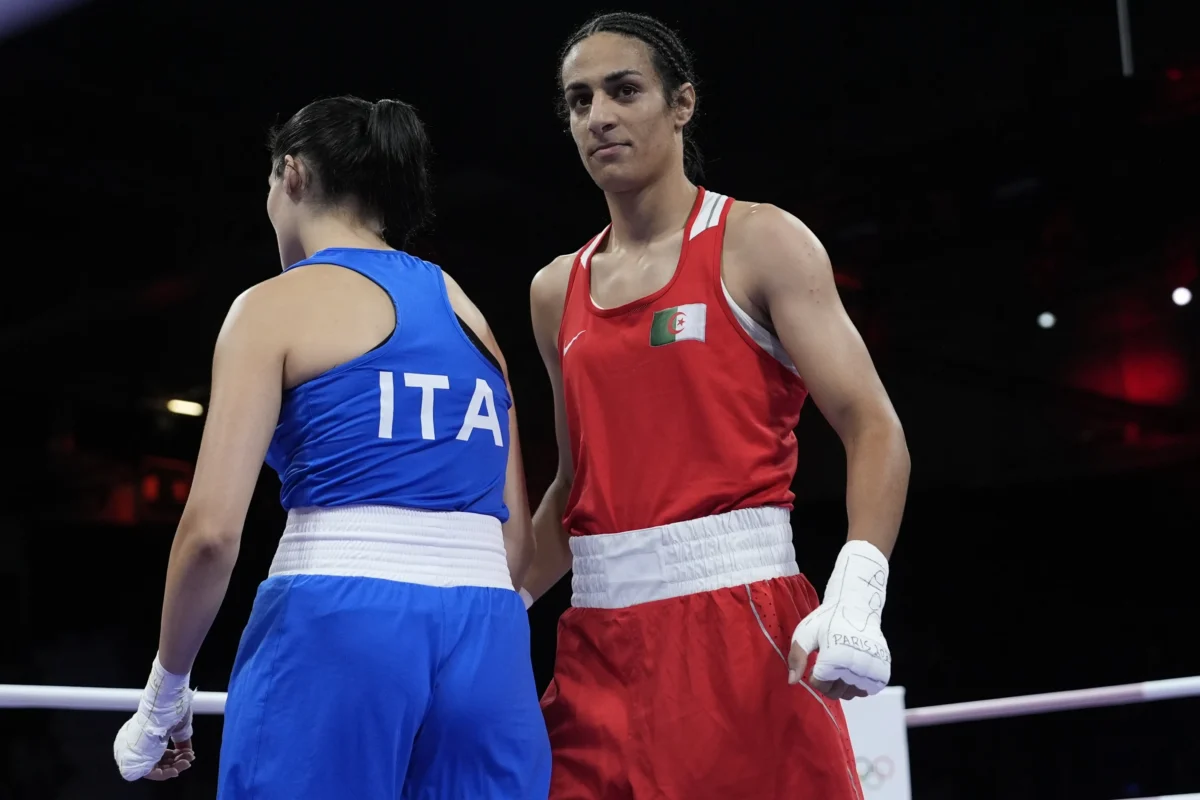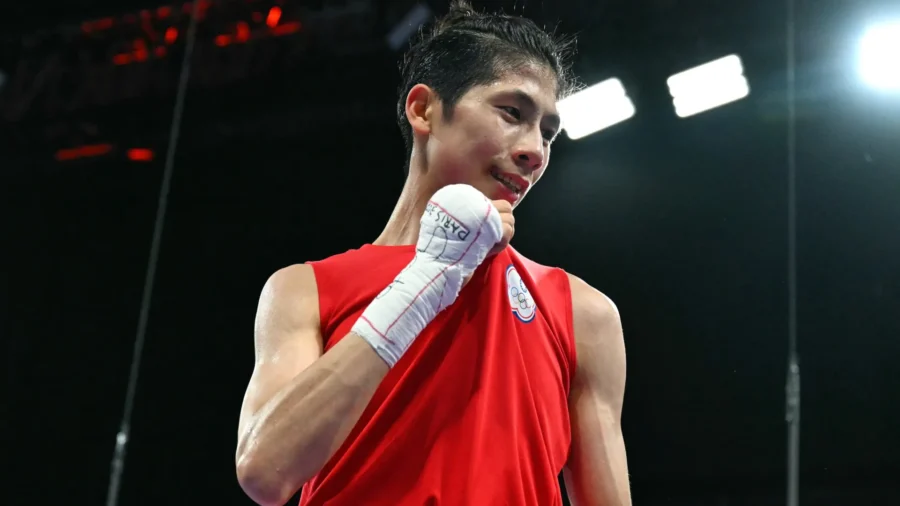Taiwan’s Lin Yu-Ting has become the second boxer engulfed in gender controversy to be guaranteed a medal in the Paris Olympics after winning a quarterfinal match on Sunday.
The 28-year-old athlete defeated Svetlana Staneva, 34, of Team Bulgaria in the women’s 57-kilogram division in a unanimous 5–0 point decision.
Lin, who has a career record of 42 wins and 14 losses, will face Turkey’s Esra Yildiz Kahraman on Aug. 7—a fight that will decide which fighter will advance to the gold medal bout.
Staneva, who has a record of 58 wins and 17 losses, shook hands with Lin after the bout before holding the rope to allow Lin to exit the ring.
“I want to thank all the supporters from Taiwan,” Lin said after the fight. The athlete did not mention the gender controversy.
Taiwanese President Lai Ching-te also showed support for Lin on his Facebook page, congratulating the athlete for advancing to the top four in the featherweight division and securing a medal for Taiwan.
“In recent days, Taiwan’s people have been indignant at the slander against her,” he wrote. “Facing the challenge, Yu-ting is fearless and uses her strength to crush the rumours. Let us continue to cheer for her!”
Lin is assured of winning at least a bronze medal by advancing to the semi-finals in the featherweight division. In Olympic boxing, a bronze medal is awarded to each losing semi-finalist.
The Taiwanese boxer is a two-time world champion with the IBA and has competed in elite-level amateur boxing for a decade.
IOC Calls IBA Gender Tests ‘Not Legitimate’
Lin and Algerian boxer Imane Khelif—who secured a medal in the Paris Olympics on Aug. 3—have both come under scrutiny because they were banned from the 2023 International Boxing Association (IBA) Women’s World Boxing Championships in India for failing IBA gender eligibility criteria.

On Aug. 4, the International Olympic Committee (IOC) defended Lin and Khelif’s inclusion in the Paris Olympics, calling the IBA’s tests “not legitimate.”
“The tests themselves, the process of the tests, the ad hoc nature of the tests are not legitimate,” IOC spokesperson Mark Adams said during a press conference. “None of it is legitimate and this does not deserve any response.”
Last year, the IOC stripped the IBA of its status as the global governing body for boxing over issues related to governance and finance. The IOC is now overseeing the boxing competition in Paris and applying eligibility rules from the 2016 and the 2021 Olympics.
However, the IBA defended its choice to suspend both boxers at last year’s event in a statement on Aug. 1, saying it conducted “two trustworthy tests” in 2022 and 2023 that led to the conclusion that both boxers had “competitive advantages over other female competitors.”
In a previous statement, the IBA said the specifics of the tests “remain confidential.”
“The IBA will never support any boxing bouts between the genders, as the organization puts the safety and well-being of our athletes first. We are protecting our women and their rights to compete in the ring against equal rivals, and we will defend and support them in all instances,” the organization said.
Khelif Breaks Silence on Gender Controversy
Meanwhile, the IBA promised on Aug. 2 to award Italian boxer Angela Carini $50,000 in prize money, the amount an Olympic boxer receives if they win gold. Carini refused to continue her Olympic bout against Khelif after 46 seconds because one of her opponent’s punches hurt her too much.
“It could have been the match of a lifetime, but I had to preserve my life as well in that moment,” she told journalists after the 66-kilogram preliminary round match on Aug. 1.
Carini said during an interview with local newspaper La Gazzetta dello Sport that she did not mean to stir up controversy and wanted to apologize to Khelif.
“All this controversy certainly made me sad, and I also felt sorry for my opponent, she had nothing to do with it and like me was only here to fight,” she said.
After Khelif’s quarterfinal win on Aug. 3, the boxer said the gender controversy is an issue that “affects my dignity.”
“I am a woman,” the Algerian boxer told reporters in Paris.
On Aug. 3, IOC President Thomas Bach said during a news conference that there was “never any doubt” about the two athletes being women.
“We have two boxers who were born as women, who have been raised as women, who have passports as women, and who have competed for many years as a woman, and this is a clear definition of a woman,” he said.
Reuters and The Associated Press contributed to this report.

